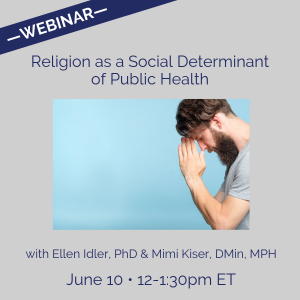Vermont Epidemiologist Position, apply by 7/10
Category : Alumni
Overview
Do you want to be part of a team dedicated to the surveillance, prevention, and control of infectious diseases in Vermonters?
We have an exciting opportunity for an Epidemiologist III in the Vector-Borne and Zoonotic Diseases Program of the Infectious Diseases Epidemiology Section, Health Surveillance Division at the Vermont Department of Health. The position is responsible for the investigation, surveillance, data analysis, and educational outreach activities for infectious conditions, particularly tick and mosquito-borne diseases and rabies. The Epidemiologist III will maintain and update internal program databases, coordinate disease detection activities with clinical and laboratory staff, and serve as a consultative resource for health care providers, veterinarians, the public, District Office staff, and state agency partners.
The successful candidate will have considerable knowledge of the principles of infectious disease transmission, laboratory diagnosis, and control; working knowledge of public health policy, medical practices, and terminology associated with infectious diseases; and the ability to communicate effectively both verbally and in writing to members of the media, advocacy groups, and the public to provide clear and consistent messaging. The position operates under the State Public Health Veterinarian, frequently collaborating with Health Department, state, federal, and community partners.
Specific examples of work include, but are not limited to:
Providing telephone consultations for infectious disease concerns
Performing educational outreach for health care provider and public audiences
Creating infectious disease summaries from human, animal, and vector surveillance data
Developing new data collection tools or resolving issues with existing ones
Assisting with outbreak investigations and emergency preparedness response
Who May Apply
This position, Epidemiologist III (Job Requisition #2012), is open to all State employees and external applicants.
If you would like more information about this position, please contact Natalie [dot] Kwit [at] vermont [dot] gov
Resumes will not be accepted via e-mail. You must apply online to be considered.
Please note that multiple positions in the same work location may be filled from this job posting.
AHS BACKGROUND CHECKS: Candidates must pass any level of background investigation applicable to the position. In accordance with AHS Policy 4.02, Hiring Standards, Vermont and/or national criminal record checks, as well as DMV and adult and child abuse registry checks, as appropriate to the position under recruitment, will be conducted on candidates, with the exception of those who are current classified state employees seeking transfer, promotion or demotion into an AHS classified position or are persons exercising re-employment (RIF) rights.
Environmental Factors
Work is performed mainly in standard office setting but with regular need to travel to hospitals for which private means of transportation must be available. Periodic participation in community or provider meetings which may be held after regular business hours. There is predictable need to manage and deal with members of the medical profession and the public in emotional and pressure type situations.
Minimum Qualifications
Master’s degree in epidemiology.
OR
Master’s degree supplemented by at least two (2) courses in statistics and one (1) course in epidemiology AND one (1) year of experience in a health-related field.
OR
Bachelor’s degree supplemented by at least two (2) courses in statistics and one (1) course in epidemiology AND three (3) years of experience in a health-related field.
Total Compensation
As a State employee you are offered a great career opportunity, but it’s more than a paycheck. The State’s total compensation package features an outstanding set of employee benefits that are worth about 30% of your total compensation, including:
80% State paid medical premium
Dental Plan at no cost for employees and their families
Flexible Spending healthcare and childcare reimbursement accounts
Two ways to save for your retirement: A State defined benefit pension plan and a deferred compensation 457(b) plan
Work/Life balance: 11 paid holidays each year and a generous leave plan; many jobs also allow for a flexible schedule
Low cost group life insurance
Tuition Reimbursement
Incentive-based Wellness Program
Qualified Employer for Public Service Student Loan Forgiveness Program
For more information and to apply, click HERE.









Recent Comments